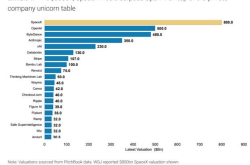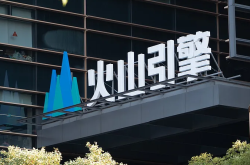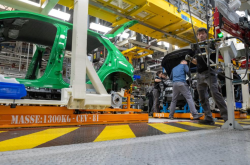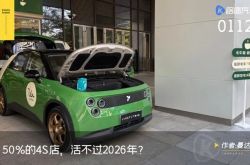"How can Chinese electric vehicles break through the tariff barriers set by the EU?
![]() 06/14 2024
06/14 2024
![]() 533
533
According to Cailian Press on June 12, the EU will impose an additional tariff of up to 38.1% on electric vehicles imported from China starting next month. The European Commission announced on June 12 that if a solution cannot be reached with China, the additional tariffs will be implemented around July 4. The European Commission stated that tariffs of 17.4%, 20%, and 38.1% will be imposed on BYD, Geely Automobile, and SAIC Motor, respectively; a 21% tariff will be imposed on other manufacturers; and Tesla cars imported from China may be subject to a separate tax rate. It is worth mentioning that the EU encourages Chinese automakers to establish factories in Europe.
In response, China's Ministry of Foreign Affairs has made a clear statement: "Protectionism has no future, and open cooperation is the right path." At the same time, European automakers and the German Association of the Automotive Industry have also expressed opposition to the imposition of tariffs on Chinese imported electric vehicles. The chairman of BMW Group, Oliver Zipse, the CEO of Volkswagen Passenger Cars, Ralf Brandstätter, and the chairman of the board of Mercedes-Benz AG, Ola Källenius, have all expressed their positions.
Currently, the EU and China are still in negotiations. Why does the EU want to impose tariffs on Chinese imported electric vehicles? Why are there significant inconsistencies in the tariffs imposed on different brands? Will they be officially implemented? What impact will it have on the development and overseas expansion strategy of Chinese electric vehicles? Besides establishing factories overseas, what other countermeasures do Chinese automakers have? Let's hear the views of experts in the automotive industry.
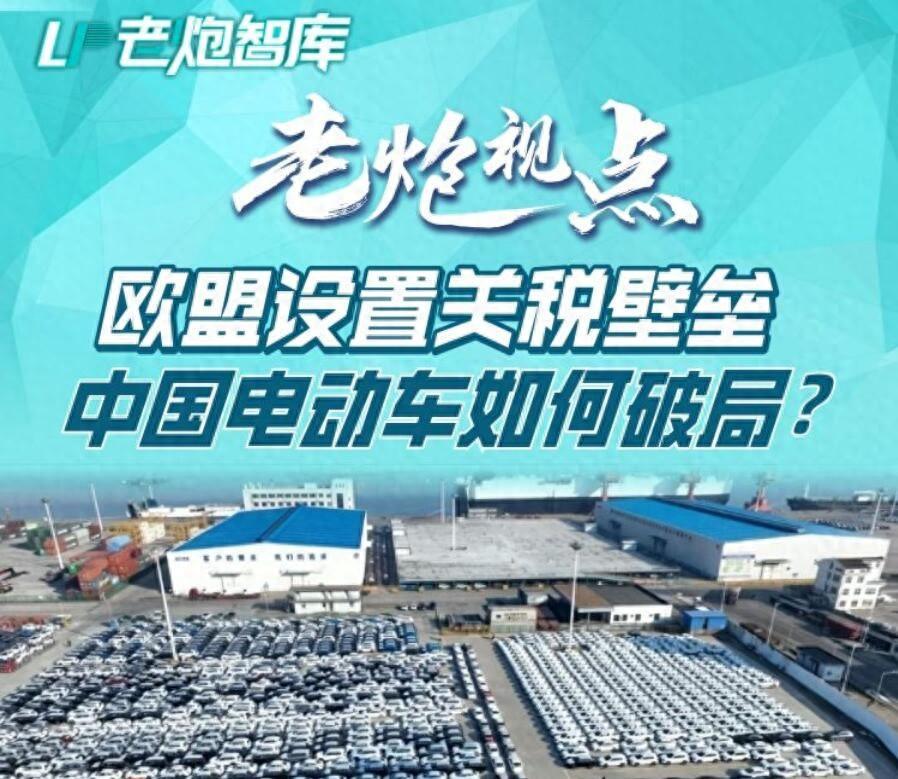
Wang Huilan, the founder of "Che Youzhi":
It is expected that the EU will impose tariffs on Chinese electric vehicles, but it is unexpected that they will be charged based on brands, setting tariff barriers while welcoming investment in factories.
The electrification of the Chinese market is developing rapidly and is now being exported globally. The cost advantage of "rolling out" has reached Europe and the United States, posing a shock to local automobile production, sales, and even the overall economy. European and American governments will naturally take measures, such as increasing import tariffs.
Facing declining economies, Europe and the United States allow Chinese automakers to establish factories locally, which can promote employment and share electric technology with Chinese automakers. Tesla plans to build a factory in Germany, but the construction process has been hindered, so the tariff increase is pending.
Chinese automakers also face issues such as high labor costs and imperfect automotive industry chains when establishing factories overseas. In addition, over-competition and the reduced profit margin caused by the increase in export tariffs. The focus of future development will still be on technological innovation, and cooperation with Europe and the United States will be complementary, using technology to exchange for the market.
Wang Jin, chief commentator of Caiquanshe & Daoge Shuoche and secretary-general of the China-Europe Association for Intelligent Connected Vehicles:
The reason why the EU imposed tariffs on Chinese imported electric vehicles is simple: only when they cannot compete, will they consider other ways to restrict. Even Tesla CEO Elon Musk admitted that Chinese electric vehicles are a strong competitor for Tesla, and the EU naturally fears competition from Chinese electric vehicles.
As for why the standards for imposing tariffs on different brands are different, it is obvious that different companies have different impacts on the European market. As the Chinese automaker that exports the most to Europe, SAIC Motor naturally received "preferential treatment." In the eyes of Europeans, SAIC Motor, being a state-owned enterprise, may receive more subsidies, but this is not the case. Chinese electric vehicle subsidies were abolished in 2023, and now the cost advantage demonstrated by Chinese electric vehicles is more of an advantage brought about by scale. The EU's thinking is wrong.
Since there are already clear standards, the implementation may be imminent. Facing the "obstacles" set by the EU for Chinese electric vehicle exports, the price advantage of Chinese automakers will be significantly reduced. Under this background, Chinese automakers need to consider whether exports can bring sufficient profits. If not, it is better to suspend exports to regions such as the EU and the United States and follow the principle of "easy before difficult".
Of course, shifting from pure product exports to exports of production capacity and technology can also respond to the "obstacles" set by the EU, such as setting up production capacity in countries closer to Europe and joint ventures with local automakers in the EU, leveraging European automakers' production bases to export products, similar to the cooperation model between Leapmotor and Stellantis. This will bring employment and tax revenue to EU countries while also making the EU's electric vehicle industry chain more complete.
Wang Zhiliang, the founder of "Cheduoli":
This trade war by the EU imposing tariffs on Chinese electric vehicles was bound to come sooner or later. Facing limited market share, global economic downturn, and unprecedented challenges in the global automotive industry, who would talk about sentiment in the face of life and death? Especially Europe and the United States, how could they just watch a wave of profits go into the pockets of Chinese brands.
Of course, while domestic electric vehicles are expanding overseas, it is also necessary to control the internal "competition" of new energy vehicles. Expanding to overcapacity is definitely not a good thing. Don't rush in as soon as you see profits, fighting price wars until you bleed, leaving yourself in a mess. Fortunately, we have made significant breakthroughs in research on the recycling and utilization of used automotive batteries, which will also make the global new energy automotive industry more dependent on China.
If the European side insists on its way, the Chinese side will definitely not sit idly by and will take all necessary measures to resolutely safeguard its legitimate rights and interests. This is the official statement. It is more hoped that building factories overseas is not the only way out, and the time for倒逼Chinese independent brands to go international is becoming more and more mature.
Gao Nanjia, the founder of "Jiaren Cheyu" and the director of the automotive department of Yangtse Evening Post:
When people say "the wolf is coming," the wolf really comes. This is a hurdle that Chinese automakers cannot avoid. Any emotional venting will not help. The top priority is to find methods and formulate countermeasures as soon as possible. No market likes "excessive competition." For Chinese automakers, having only a price advantage is not enough to become a global brand. Forging their irreplaceable core competitiveness is the only way to become a true powerhouse.
Lou Xiaoming, the founder of "Che Dongli":
The cost-effective advantage and leading intelligence level of Chinese electric vehicles have made the EU unable to withstand and are preparing to impose tariffs. SAIC Motor has suffered the heaviest blow due to its failure to cooperate with the investigation, with a tax increase of 38.1%. I am not surprised at all about this. There is never absolute fairness in this world. When an industry is threatened, trade protectionism will inevitably rise to protect local employment and industry chains. In the field of new energy, in the Chinese market, BBA has been defeated by Chinese electric vehicles. If they enter Europe, the market landscape may change completely, which is also the ideal way for many Chinese automakers to break the deadlock. However, the EU's imposition of tariffs is worthy of consideration by Chinese automakers. The road abroad is not easy, and domestic losses are increasing. How long can the money-burning war last? I believe that through technological innovation and value creation, it is the path to sustainable development for Chinese electric vehicles.
Yang Kequan, the founder of "Router Society":
It is not surprising that after the United States, the EU has also imposed tariffs on Chinese electric vehicles. There are several points of this rebound that are particularly noteworthy:
1. Chinese electric vehicles, which have not yet fully developed their wings and are clamoring to enter the European and American markets, have finally faced a rebound. Silent wealth accumulation is the key, and the ancient wisdom of "building high walls, amassing grain, and delaying kingship" still applies today.
2. German automaker CEOs have expressed opposition, while Chinese automaker CEOs have collectively remained silent, forming a stark contrast with the previous squabbling and arguing at the Chongqing Forum, which is quite intriguing.
3. Everything has a cycle. Nowadays, the trend of anti-globalization is still on the rise and intensifying. For Chinese electric vehicles seeking to go overseas and expand overseas sales, it will be a long-term task to improve their internal strengths, especially the gaps in talent, law, system, and values that must be experienced during the overseas expansion process.
Huang Xiwei, the founder of "Automotive Memoirs":
When the EU wields the tariff stick against Chinese cars, it fully demonstrates that Chinese cars have truly risen! Not only in China, but Chinese cars are also gaining increasing recognition globally. Based on strong cost control and innovation in new energy technology, Chinese cars will undoubtedly occupy an increasing share of the global market in the future.
The future of Chinese car exports is bright, but there will be setbacks in the present. It is expected that Chinese car exports to the EU will be affected within one or two years. With increasing global trade frictions, for the Chinese automotive industry aiming for a global presence, it is necessary to consider adjusting the current mainstream pure trade export model, which is flexible and relatively controllable in terms of risk, but the problem is that it is too vulnerable to tariffs. If Chinese automakers want to go global, they must have an overall strategy and actions for local production and services. Only by truly integrating into the local market can they achieve sustainable development. Although local factory construction brings greater challenges and risks, including but not limited to regulations, labor unions, exchange rates, and cultural integration, it is the inevitable path for the globalization of the Chinese automotive industry.

